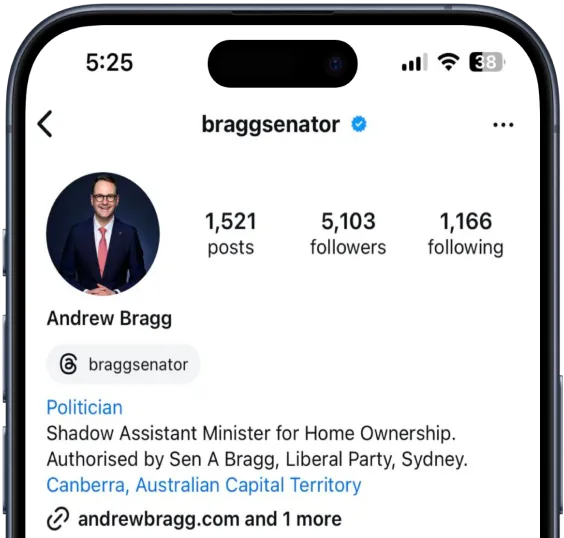
Interview with Sally Sara on ABC RN Breakfast
Subjects: Proposed EPBC Act changes, National Construction Code pause
E&OE………
Sally Sara
Andrew Bragg is the Shadow Minister for Productivity and Deregulation and joins me now. Andrew Bragg, welcome back to Radio National Breakfast.
Senator Bragg
Good morning, Sally. How are you?
Sally Sara
Very well, thank you. The Shadow Environment Minister, Angie Bell, had previously said that she'd had productive talks with the Environment Minister, Murray Watt. What's changed?
Senator Bragg
Well, I think we're open-minded, but the reality is that the government says that they are focused on trying to improve productivity and to cut red tape and cut green tape. But we don't see any tangible outcomes here. We don't see a net reduction in red or green tape. And so, we're waiting with bated breath to see whether the government can actually walk the walk.
Sally Sara
What's a non-negotiable red line for the Coalition on this issue?
Senator Bragg
We want to see less bureaucracy. The two things we want to see here in this productivity and red tape and green tape agenda is we want to see a net reduction in overall compliance costs, and we want to see less bureaucracy.
Sally Sara
The public hasn't seen what's in this Bill. You've seen parts of a draft, what's in it that you think developers and investors should be worried about?
Senator Bragg
Well, our Shadow Environment Minister, Angie Bell, has been negotiating, and so I'll leave it to her to make the detailed points. But I make the general point, again, that Jim Chalmers, Clare O'Neil, Murray Watt, they all talk a big game about wanting to cut red tape. But all we see is more and more regulations from a government that put in place 5,000 new regulations last Parliament, passed 400 new laws costing $5 billion. And so, what we want to see is a change of direction. I thought that Jim Chalmers had read the book Abundance, and he knew now that red tape and green tape was bad, but we don't seem to see any actual tangible reduction.
Sally Sara
Sussan Ley says the reforms threaten the critical minerals and rare earths deal the government signed with the US this week. What specifically in the legislation would do this?
Senator Bragg
Well, if the legislation is going to propose new bureaucracies, new agencies, I just think it's going to make it so much harder to get things done in this country. I mean, it's a very hard country to do business in. One of the main issues with EPBC is it duplicates State-based regulations. So, if you want to do something in this country, you've got to get a State approval, a Federal approval. And then if Murray Watt is going to give himself god-like powers to veto everything at the end, I mean people just aren't going to invest or do business here.
Sally Sara
Do you think that the approvals process for a project should be sped up, particularly to ensure the critical minerals and rare earths industries?
Senator Bragg
Look, I think across the board, there should really be hard and fast timetables which can be approved or denied within an orderly period of a couple of months, I would have thought. The idea that these things drag out for years, I mean in the housing space, EPBC Act is holding back thousands and thousands of houses because of the way that Anthony Albanese and Tanya Plibersek administered in the last Parliament. Look, if the government is going to actually do the right thing, then we'll back them. But if they're going to create more bureaucracies and more agencies and more rubbish, then, of course, we're going to say; well, this is not the way to go.
Sally Sara
This morning, we heard from a senior representative of the Victorian Farmers Federation in one part of Victoria where critical minerals, there are already some operations and there may be more. He was expressing concern about the environmental impacts, particularly for the farming industry. Do you understand that some sectors might actually be worried about a rapid approval process for critical minerals products?
Senator Bragg
Well, the question is, how many people need to be involved with this? You've got a State EPA, effectively in Victoria, then you've got a national body. I just wonder, do we actually want to do anything in this country? I can't imagine other countries that we're competing with here, and given the geopolitical and other factors we should be considering, are going through two or three layers of heavy bureaucracy.
Sally Sara
We've seen in China, there's been billions of dollars in costs repairing environmental damage from critical minerals. Is that the kind of environmental controls we want to have here, if that's our major competitor on processing?
Senator Bragg
I guess my point is that why do we want to have two? One of the major issues with EPBC is that in some states, organisations who are wanting to do business, whether it be critical minerals or housing or something else, have to go through two different processes. So, the point would be, can we get down to one? Can you have reasonable timetables? Can you still do your environmental assessments? I would have thought that it's achievable given we've been able to put people on the moon.
Sally Sara
You're listening to Radio National Breakfast. My guest is the Shadow Minister for Productivity and Deregulation, Andrew Bragg. You're also the Shadow Minister for Housing. Earlier this week; Federal, State and Territory leaders agreed to pause and streamline the National Construction Code in an effort to build up supply. Is that good news?
Senator Bragg
What are they streamlining? I don't know that you can tell anyone because as far as I can see, the 2022 National Construction Code changes aren't going to be paired back. Now, these are the changes that really add a lot of cost to an entry-level house. One of the major issues with the cost housing is that there are so many bells and whistles now on the basic house that needs to be built to be compliant in Australia. So as far as I can see here, again, they're not actually removing any red tape they put in place in the last Parliament. All they're promising is to do no harm in the future. So that's pretty cold comfort for people who want to buy an entry-level house. And I should say that as a result of the government's changes to the government insurance scheme, we're now seeing the biggest spike in entry-level first home dwellings in living memory. So this is a government that has presided over a collapse in housing supply, and now they've debased this mortgage insurance scheme, which is now going to spike prices for the people who it was originally designed to help.
Sally Sara
Andrew Bragg, thanks for your time this morning.
Senator Bragg
Thanks, Sally.
Sally Sara
Andrew Bragg is the Shadow Minister for Productivity and Deregulation.
[Ends]
.webp)
Get your Statement and Transcript Copy.
Video Shorts
Quick insights on the issues shaping Australia’s future — straight from Parliament.


